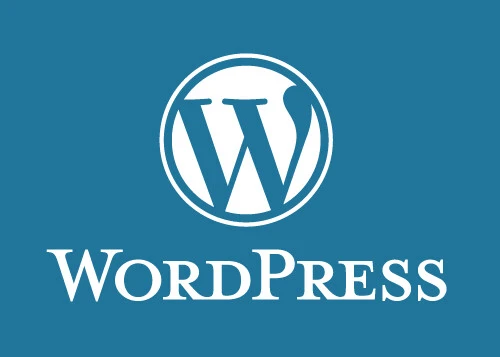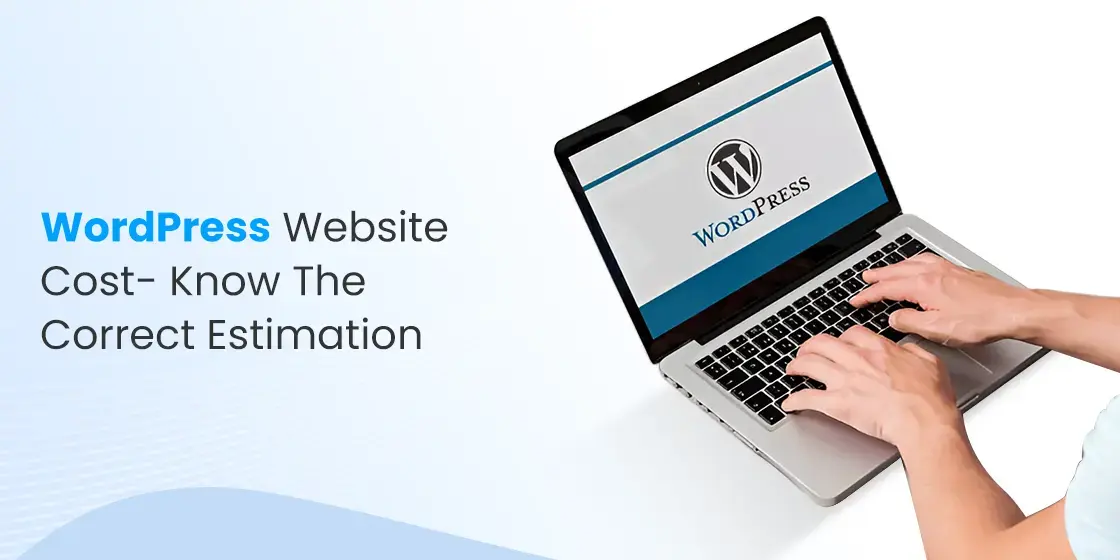Table of Content
Know The Factors That Could Scale Up The Cost of WordPress Website Development
WordPress has become one of the most widely used website development platforms globally, powering millions of websites across various industries. Its flexibility, user-friendly interface, and vast library of themes and plugins make it an attractive choice for startups and businesses looking to establish an online presence. Whether a company is creating a simple blog, a corporate site, or an ecommerce store, WordPress offers scalable solutions that can meet a range of needs and budgets.
Despite its popularity and accessibility, one common consideration for businesses is the cost of building and maintaining a WordPress website. While the platform itself is open-source and free to use, there are several associated expenses that can affect the total investment. The WordPress website cost can vary widely depending on factors such as design complexity, functionality requirements, and whether professional services are used for development and maintenance.
When planning for a WordPress website, it’s important to understand both one-time and recurring costs. Understanding these pricing components in advance can help businesses make informed decisions while choosing relevant web development services. This blog will take a quick look into the factors that often influence the cost of website development. Let’s start from the basics below understanding why WordPress has become a popular platform for web development.
What Makes WordPress Highly Popular?

WordPress stands out as a top choice for web development primarily because of its versatility and ease of use. Originally created as a blogging platform, it has evolved into a powerful content management system (CMS) that supports different types of websites. Its intuitive dashboard and user-friendly interface allow users with little to no technical background to create and manage content, making it accessible to beginners while still offering robust capabilities for developers.
Another key factor behind WordPress’s popularity is its extensive customization options. With thousands of free and premium themes and plugins available, users can tailor their websites to meet specific design preferences and functional needs. Plugins extend the functionality of a site by adding features like SEO tools, contact forms, booking systems, and online stores. This level of adaptability ensures that WordPress can accommodate a wide array of business models and industries.
In addition to flexibility and customization, WordPress benefits from a large community of developers, designers, and users. This community contributes to continuous improvements, frequent updates, and a wealth of online resources such as forums, tutorials, and documentation. The platform’s open-source nature also means it is constantly evolving with new innovations. As a result, businesses can rely on WordPress not only for its current capabilities but also for long-term scalability and support, making it a strategic choice for web development projects of all sizes.
WordPress Website Cost: Factors Influencing the Budget

There are many factors that influence the cost of WordPress website development. Being a project stakeholder, you need to know about these things in advance, as that helps to make better decisions. Let’s take a look at some of these factors below.
Website Theme
The design and theme of a WordPress website play a significant role in determining the overall cost of development. The design encompasses the layout, visual elements, user interface, and overall aesthetic appeal of the site. Businesses may choose to work with professional designers to create a custom design tailored to their specific goals and target audience, which can substantially increase costs. Alternatively, they may opt for pre-made templates that are more budget-friendly but may require some customization to align with functionality needs.
Themes, which control the structure and style of a WordPress website, also contribute notably to the cost. While there are many free themes available in the WordPress repository, premium themes offer advanced features, better performance, and regular updates. Whether choosing a free, premium, or custom theme, the selection has a direct impact on both the upfront investment and the ongoing functional requirements of the website.
Hosting Service
Hosting services are a fundamental component of any WordPress website and can significantly influence the overall development cost. At a basic level, hosting refers to the server space where your website’s files, databases, and content are stored. There are various types of hosting options available. Shared hosting is typically the most affordable option. On the other hand, managed WordPress hosting provides optimized performance, and expert support, which can be especially beneficial for businesses but comes at a higher monthly or annual cost.
The choice of hosting not only affects the budget but also impacts the long-term functionality and growth potential of a website. Furthermore, some hosting providers bundle essential services such as SSL certificates, backups, and malware protection into their plans, which can save costs elsewhere. Therefore, when budgeting for WordPress website development, it’s crucial to consider not just the initial price of hosting but also the long-term value and performance benefits it provides.
Domain Name
The domain name is a crucial element of any WordPress website and can influence development costs in several ways. A domain name is the web address users type into their browser to access your site, and choosing the right one is essential for branding, credibility, and discoverability. Basic domain names with common extensions like .com, .net, or .org are typically affordable. However, if a desired domain is already owned by someone else or is considered a premium domain, it may come with a significantly higher price tag, sometimes reaching hundreds or even thousands of dollars.
Beyond the initial purchase, a domain name can also incur ongoing costs that need to be factored into a WordPress website’s overall budget. Renewals are typically annual, and some registrars offer additional services such as domain privacy protection. In cases where businesses want to secure multiple extensions or similar domain names to protect their brand, the total domain-related costs can rise further. While not the most expensive part of website development, the domain name is a foundational expense that can impact long-term growth strategies.
Website Plugins
Plugins are essential tools in WordPress that extend the platform’s functionality, and they can significantly influence the overall cost of enterprise website development. While WordPress offers thousands of free plugins through its official repository, many advanced features required by businesses often depend on premium plugins. These premium plugins typically involve a one-time purchase or an annual subscription fee, which adds to the development budget
Beyond the initial installation, plugins can impact long-term expenses through updates, maintenance, and potential compatibility issues. Keeping plugins up to date is crucial for security and performance, and some premium plugins require ongoing payments for continued support and access to the latest features. As a result, they should be carefully selected and budgeted for to avoid hidden or escalating costs during and after the development process.
Average Cost of WordPress Website Development
The cost of developing a WordPress website can vary greatly, primarily because each business has its own unique requirements for design, functionality, and scalability. The initial investment for a WordPress website can range anywhere from as little as $1000 for a basic to $100,000 or more for a fully customized platform built by an experienced development team.
In addition to the upfront development costs, ongoing maintenance expenses must also be considered. These recurring costs can include hosting, domain renewals, plugin and theme updates, security monitoring, backups, and technical support. Depending on the complexity of the website, maintenance costs can range from around $50 per year to $10,000 or more annually.
Frequently Asked Questions
| Why WordPress is becoming popular in the world? WordPress is becoming increasingly popular due to its user-friendly interface, and ability to create a wide range of websites. Its vast library of themes, plugins, and strong community support further enhances its global appeal. |
| What type of websites can be built on WordPress? WordPress can be used to build a variety of websites, including blogs, business websites, ecommerce stores, portfolios, forums, and membership sites. Its flexibility and extensive plugin support make it suitable for both simple and complex web projects. |
| What are plugins in WordPress? Plugins in WordPress are add-on tools that extend the functionality of a website. They can be easily installed and configured without needing to modify core code. |
Final Words
That concludes our entire article in which we have discussed different factors that could influence the cost of WordPress website development. Keeping all these things in mind is important for project managers, as it allows them to make informed decisions before starting any project. The WordPress website cost is therefore not a definite budget, but an evolving price that could change according to the needs and requirements of clients.
Empower your digital initiatives with BariTechSol, a premier custom software development company. Our skilled team tailors cutting-edge solutions to your unique needs. Elevate your tech experience and stay ahead in the digital realm. Partner with BaritechSol and code the success of your next big idea.


